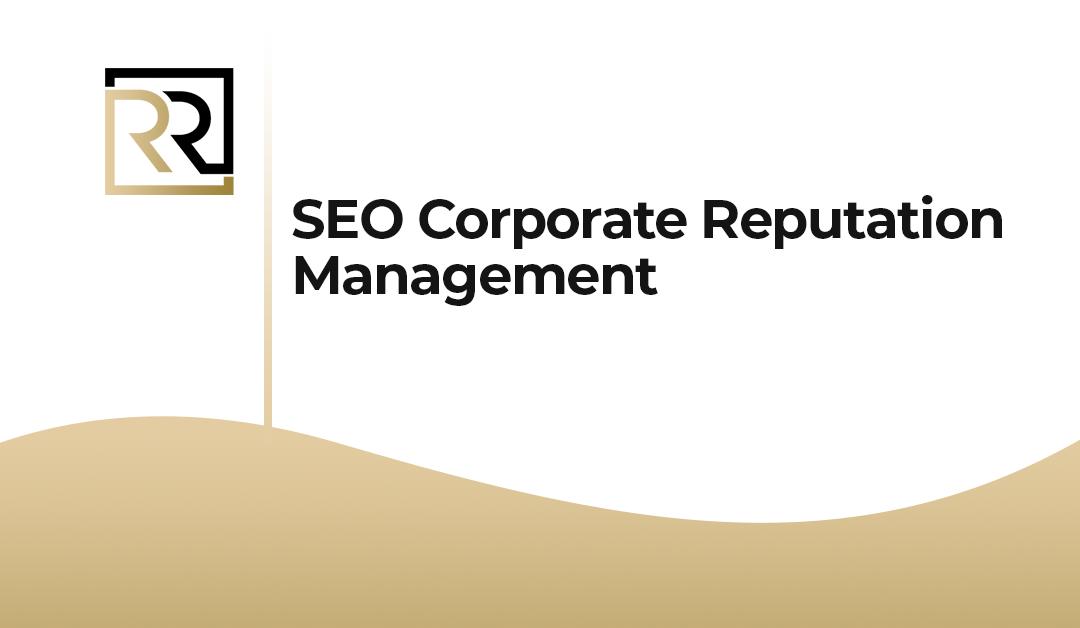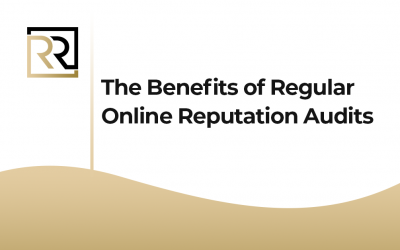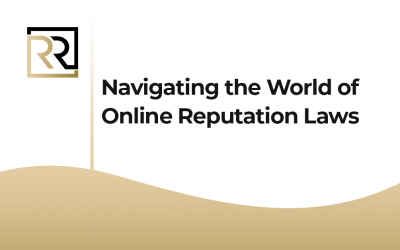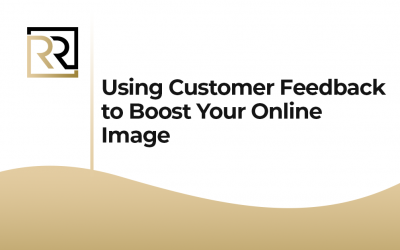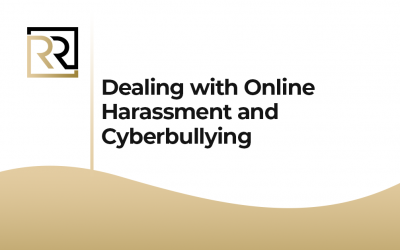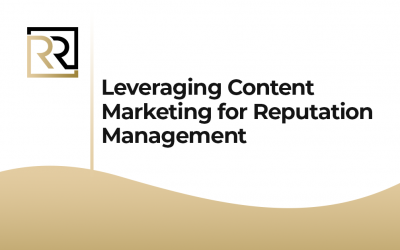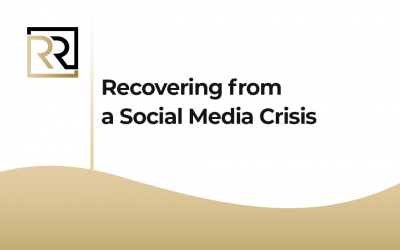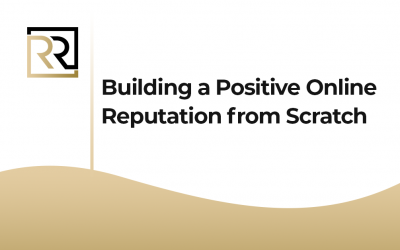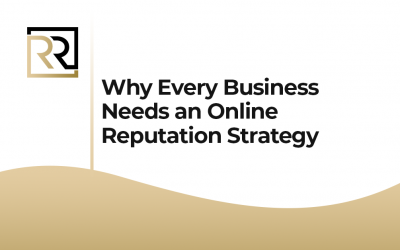SEO Corporate Reputation Management
We will show you how we utilize search engine optimization (SEO) to mold your online reputation for your most valuable branded keywords in this advanced guide to SEO corporate reputation management.
What is corporate reputation management in terms of SEO?
In order to construct your online reputation, SEO Corporate reputation management employs search engine optimization tactics to affect your branded search results. Unlike traditional SEO, which covers a wide range of keyword categories, SEO corporate reputation management focuses solely on branded keywords. Therefore, mentions of your organization and senior executives, as well as your products and services, are just a few instances.
Although ORM and SEO are comparable, they are not the same thing. So, let’s have a look at how they vary.
SEO vs. ORM
Because both impact the Google SERP, it’s easy to mix up online reputation management with search engine optimization. However, there are a few significant distinctions to be aware of. Consider the following scenario:
We employ SEO to rank various websites for a variety of keywords. However, we, on the other hand, utilize reputation management to rank a small number of websites for a specific set of branded keywords.
To put it another way, SEO’s ultimate objective is to have a single website rank first for as many keywords as feasible. The purpose of ORM is to get positive material on the first page of Google for brand-related keywords.
How does SEO Corporate Reputation Management in search engines work?
In terms of online reputation management, SEO is critical. In reality, if you don’t understand search engine optimization, you’re only engaging in digital public relations. You must first comprehend why content ranks in search engine results pages (SERPs) before you can alter them.
In other words, search engines rank material based on how well it responds to user queries. To calculate rankings, their computers consider hundreds of unique signals. The majority of them, however, may be divided into two categories: on-page and off-page SEO. Therefore, these indicators assess elements such as user experience, content quality/relevance, and trustworthiness. Negative material does well for a variety of reasons, including topic density and appeal.
So, you must grasp how these elements work together if you want to develop an enduring brand reputation. Furthermore, you must follow Google’s standards at all times.
For decades, we’ve been at the cutting edge of search engine reputation management (SERM), establishing unrivaled technology and methods.
Presidio, our proprietary engine, analyzes data from hundreds of URLs to map brand emotion and uncover trends that push undesirable narratives higher in Google.
In order to discover trends and measure search intent and popularity, we do extensive keyword research. Then, in order to develop a successful SEO plan, we examine on-page and off-page SEO ranking variables.
Why is SEO corporate reputation management crucial?
A poor brand image has a significant influence on the health of your organization. This is because company reputation influences employment, sales, lead creation, business relationships, investor confidence, and CAC, among other things.
So, let’s look at some of the important areas where a bad internet reputation has the most impact. Find out why internet reputation is so important.
Loss of organic traffic
The days of having only one or two local stores to pick from are long gone. Prospective shoppers may now find an unlimited array of companies competing for their business with just one search.
As a result, customers are wary about where they spend their money. One unfavorable news story about your company, for example, may deter buyers from visiting your website. Worse still, bad material tends to garner a lot of attention, resulting in a vicious loop that depletes your website’s visitors. Furthermore, unfavorable material attracts links, propelling it to the top of Google’s first page, where more customers will click.
Ultimately, these clicks divert attention away from your website and social media accounts, robbing you of conversion opportunities.
Loss of PPC traffic
PPC (pay per click) advertising is not inexpensive. When it comes to consumer acquisition, it’s really four times more expensive than SEO. Furthermore, it has a dismal CTR of roughly 2%, compared to organic search, where branded clicks may easily reach 30%.
Consider what would happen if a potential consumer was ready to click on your paid advertisement when they came across a bad headline a few results down. They’ll most likely read that content instead, thus diminishing your paid income.
Overall marketing has decreased. ROI
Every year, you spend millions of dollars as a marketer to boost sales, develop client loyalty, and broaden your audience. To boost income, you spend in research, high-quality content, paid advertising, data analytics, and so much more. However, a bad internet reputation might reduce the effectiveness of your marketing activities.
Unfortunately, diagnosing why marketing programs are underperforming is not always straightforward for businesses. If the decreasing trend spans all of your marketing platforms, you might not attribute it to unfavorable search results. But you’d be mistaken.
Furthermore, future clients are likely to Google your business regardless of where they first meet your brand – social media, billboards, TV commercials, publications. They may use your brand name to reach your website or to read online reviews. The point is that they’ll look at what’s on page one, and your digital marketing budget will vanish.
Loss of business value
Furthermore, according to a new Forrester Consulting report, 48 percent of CEOs feel that lowering negative search results will improve brand equity. According to the same survey, 54 percent of CEOs believe that lowering negative search results will boost revenue growth.
However, because a great brand image affects practically every revenue-generating component of your business, it’s difficult to quantify its exact value. Further, following a reputational risk assessment, shareholders may sell their stock. Customers may boycott your firm, forcing senior executives to resign. The value of a stock can wipe out millions of dollars in market capitalization. Consider what happened to Papa John’s Pizza in 2018. In just a few hours of stock trading, their CEO’s reputation cost them $96.2 million in market value. SEO Corporate Reputation Management is crucial nowadays.
Unable to recruit great talent
Another area of your organization where SEO reputation management may help is talent recruiting. Negative reviews and stories put off qualified candidates before you may even discuss your competitive benefits package. Unfortunately, criticism does not have to be justified in order to harm your recruiting efforts. Unfounded complaints and allegations might also lead to a top recruit looking for a new job.
Even if you are able to persuade a potential CMO to accept your offer, you will wind up paying more in salary and benefits than if you had a stellar reputation. According to Harvard Business Review, a firm with 10,000 employees can spend up to $7.6 million in extra compensation to compensate for a bad image.
Tips and techniques for managing your SEO reputation. Let’s address the elephant in the room before we get into some key SEO methods…
Search results removal vs. burying
Online reputation management does not utilize “negative SEO” or “reverse SEO” to lower Google results, contrary to popular misconception. Firms also do not hack websites to remove data.
In fact, because there are so many unpredictable variables, it’s nearly difficult to totally delete Google search results. Instead, ORM firms develop and increase your internet presence in order to relocate undesired information on page two and beyond. Positive results drive negative results down as they increase in Google.
As you may have predicted, burying one bad result in position two necessitates the lifting up of as many as nine additional URLs. So, before you start implementing your SEO reputation management approach, you may need to create content, build a website, launch a blog, and create new social media accounts.
1. Perform keyword research.
Firstly, the core of every successful strategy is keyword research. It’s vital to find every search word that might bring up negative material about your business, goods, services, or leadership team. To discover them all, use SEO tools like Ahrefs and SEMrush. There might be thousands of keywords to find depending on how big and well-known your firm is.
2. Creating a search landscape map
Next, conduct a Google search for each of your goal keywords and evaluate the results as a whole. Is there a diverse range of content kinds available, such as featured snippets, videos, photographs, articles, websites, blogs, and social profiles? Do you have a Wikipedia page or a knowledge graph for your topic? What is the general feeling about your brand: positive, negative, or neutral? On the first page, how many results do you have influence over? Is your homepage optimized for your brand? Do your most valuable assets appear first?
Don’t only hunt for negative information and disregard the rest. Identify any areas of the search landscape where your voice isn’t being heard. Establish yourself as a trusted market leader so that consumers can see the whole picture while searching for your brand.
3. Owned web properties on-page optimization
Although your website is likely to rank for your company name, it may not appear for critical comparison search phrases and reviews. On-page SEO guarantees that your content appears in search results for as many branded phrases as possible. Also look for chances outside of your major domain. So, personal websites, blogs, review profiles, and other digital assets should all be claimed and optimized.
Title tags, header tags, internal links, body copy, picture alt text, and site performance are the most critical things to focus on for assets you control.
4. Strategy and production of content marketing
SEO reputation management requires a comprehensive and forward-thinking content strategy. Unfortunately, far too many business executives mistakenly believe that “content strategy” is flooding your company blog with as many postings as possible. Or, even worse, filling each article with keywords till it’s unpleasant to read.
Google has progressed much beyond that threshold.
Now is the time to create a comprehensive content marketing strategy that incorporates all forms of material to expand your digital asset inventory. You must consider options other than blogging. Social media, customer reviews, videos, graphics, biographies, press releases, and much more are all part of content marketing. If you’re not thinking this big, your content strategy isn’t as strong as it should be.
5. Claim and improve social accounts for Google rankings
Now is the moment to invest on a strong social media presence if you haven’t already. Also, customers use social media to convey their impressions of your company. They are used by prospective employees to assess your company culture and staff engagement. Executives also use Twitter and LinkedIn to identify themselves as industry thought leaders.
Social media accounts are also beneficial to your SEO reputation management strategy since they allow you to take up more space in the SERPs. As a result, you must take control of as many profiles related with your company as feasible. Therefore, optimized, professional social media profiles perform well in the SERPs, allowing you to connect with consumers and stakeholders while driving bad information to the bottom.
6. Create a presence on review sites.
As the number of review sites available to clients expands, word-of-mouth referrals are becoming less significant. It’s critical to understand which review sites your clients favor. Local firms, for example, may choose Yelp, whilst bigger enterprises may use Trustpilot. However, there are a few essential platforms with which you must engage in order to maintain control over your story in the SERPs:
Glassdoor
Former and current workers can rate your organization using a star system on this website. Further, they can also provide input about the CEO, management, and the advantages and disadvantages of working for your company. Unfortunately, dissatisfied employees regularly utilize Glassdoor to make false or exaggerated claims about your company and top leaders. These bad evaluations attract the attention of potential employees. If they clutter up the first page of search results, it might be difficult to recruit and retain employees. In fact, 33% of potential employees claimed they would turn down a job offer if the organization had negative evaluations.
Trustpilot
Trustpilot is a big review platform with approximately 1 million new reviews posted each month, according to reports. The site generates a “TrustScore” using a star rating system, making it simple for customers to compare brands.
Besides, businesses may sign up for a free Trustpilot account to reply to client input, including favorable ratings. It’s worth emphasizing that you must take control of your account in order to reply to good and negative consumer comments. This allows you to detect issues early in the consumer journey and experience, before they appear in your search results.
My Business on Google
Google has long had its own popular customer review program, and that feedback is prominently shown in the SERPs. As a result, it’s critical to provide sufficient time and resources to monitoring this service. Google, like Trustpilot, allows companies to take control of their own profiles and communicate with customers through reviews.
While the general mood of these remarks is significant, responding to consumer complaints in a timely manner is also vital. Although it may appear to be a minor aspect of customer service, reviewers who offer your business a starred rating are searching for your attention.
Learn how to generate positive Google reviews from satisfied consumers.
7. Create relevant, authoritative backlinks
Moreover, backlinks are one of Google’s top three ranking criteria, and they’re not going anywhere anytime soon. But why do they matter? Because they are used by Google to determine competence, authority, and trust. When a website links to a piece of information, it’s an indication that the material is a useful resource on a certain subject. However, not all backlinks are made equal.
Websites with a high level of popularity, trust, and authority pass on far more value than websites with a low level of authority. Moreover, spammy links from sketchy websites or private blog networks are also worthless. In fact, they may even affect your search rankings by putting you in a negative link neighborhood.
Link value is also influenced by relevance. A backlink, for example, is worth more if the phrase, paragraph, subheading, page, and website all connect to the same page.
Unfortunately, many reputation management organizations continue to use outdated link-building techniques that are of little long-term use. With secret blog networks and useless auto-generated material, they blatantly break Google’s standards. In reality, these strategies put firms at danger since they will eventually be found and devalued.
Management of a company’s online reputation takes time.
We see SEO Corporate reputation management as a long-term collaboration with our clients.
There are a slew of other companies that will guarantee you results for pennies on the dollar. However, be aware that these companies operate in the shadows of the internet and cause more issues than they solve. Their purpose is to achieve short-term, unsustainable victories in exchange for a fast buck. But Google is getting smarter by the day, and your lousy practices will ultimately catch up with you.
Working with a professional search engine Corporate reputation management business from the start helps you to create a long-lasting digital fortress around your brand and online reputation. Our highly experienced staff can help you recover from a crisis or restore reputation harm caused by a viral news cycle. We grow to suit your business’s ever-changing demands and connect effortlessly with your workforce. What’s more, we also never outsource tasks to freelancers or use high-risk strategies that might endanger your privacy.
We would love to hear about your issues and possibly help you and your company solve them, feel free to contact us.
Services
Our Services
Search Engine Content Removal
Social Media Content Removal
Positive Content Creation
Online Reviews Optimization
Search Results Optimization
Learn
Our Blog
The Benefits of Regular Online Reputation Audits
The Strategic Advantages of Regular Online Reputation Audits Chiefly, in an era where digital presence plays a pivotal role in personal and professional success, the importance of maintaining...
Navigating the World of Online Reputation Laws
A Comprehensive Guide to Online Reputation Laws In today's interconnected world, where digital interactions shape perceptions and influence decisions, online reputation has become a valuable...
Protecting Your Personal Information Online
Protecting Your Personal Information Online - A Comprehensive Guide In an age where our lives are increasingly intertwined with the digital realm, protecting your personal information online has...
Using Customer Feedback to Boost Your Online Image
Boost Your Online Image by Leveraging Customer Feedback In the digital age, where online reputation can make or break a business, customer feedback serves as a potent tool for shaping and...
Dealing with Online Harassment and Cyberbullying
A Comprehensive Guide to Dealing with Online Harassment and Cyberbullying In an era dominated by digital interactions, the dark side of the internet—online harassment and cyberbullying—has...
Leveraging Content Marketing for Reputation Management
Harnessing the Power of Content Marketing for Reputation Management In today's digital landscape, where perceptions are shaped by online content, corporate reputation management is more...
Recovering from a Social Media Crisis
Recovering from a Social Media Crisis A Comprehensive Guide to Recovering from a Social Media Crisis Take care of your corporate reputation management. In the dynamic landscape of...
Building a Positive Online Reputation from Scratch
A Guide to Building a Positive Online Reputation from Scratch In the digital age, where first impressions are often formed through online interactions, building a positive online reputation...
Why Every Business Needs an Online Reputation Strategy
The Crucial Role of an Online Reputation Strategy for Every Business Further, in the age of digital connectivity, the reputation of a business is no longer confined to word-of-mouth...


